19th Gender Summit - Global for SDGs : Day 2
Day 2 programme is composed of presentations by international gender experts and practitioners aimed at demonstrating: i) new scientific understandings of gender issues in fields underlying SDGs, ii) applications of gender knowledge to inform and enhance impact of policies and actions on SDGs, and iii) lessons from the experiences of designing and implementing interventions for SDGs. The presentations are organised around three themes: Theme 6 – methods of sex/gender analysis; Theme 7 – gendered innovations for SDGs; Theme 8 – emerging career pathways in sustainability related fields; Theme 9 – shaping the next 10 years of research and innovation for SDGs.
Theme 6 Introduction
Duration
10 m
Theme 6: Developing and Applying Methods of Sex/Gender Analysis in Research for SDGs
View webinar about Theme 6 Introduction
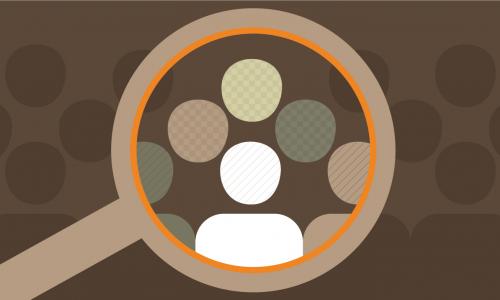
Gender Issues in Community Design for Ageing in Place
Duration
1 h
Theme 6: Developing and Applying Methods of Sex/Gender Analysis in Research for SDGs
View webinar about Gender Issues in Community Design for Ageing in Place

New analysis of the literature on SDGs to identify across which SDGs (beyond SDG5) gender research is being incorporated and where gaps may still exist
Duration
1 h
Theme 6: Developing and Applying Methods of Sex/Gender Analysis in Research for SDGs
View webinar about New analysis of the literature on SDGs to identify across which SDGs (beyond SDG5) gender research is being incorporated and where gaps may still exist
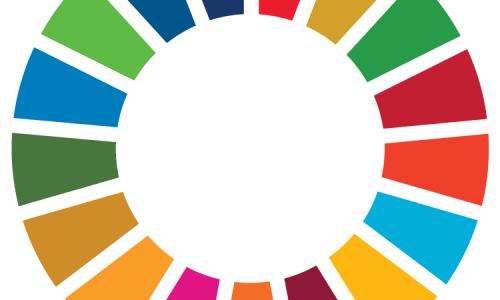
Advancing best practice for incorporation of gender analysis in health research
Duration
1 h
Theme 6: Developing and Applying Methods of Sex/Gender Analysis in Research for SDGs
View webinar about Advancing best practice for incorporation of gender analysis in health research
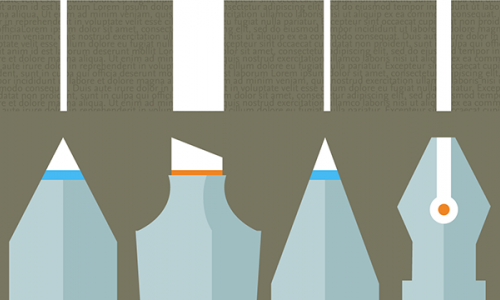
Integrating sex/gender methods into human biomonitoring studies
Duration
1 h
Theme 6: Developing and Applying Methods of Sex/Gender Analysis in Research for SDGs
View webinar about Integrating sex/gender methods into human biomonitoring studies

Intersectional perspectives in digitalisation of science and society
Duration
1 h
Theme 6: Developing and Applying Methods of Sex/Gender Analysis in Research for SDGs
View webinar about Intersectional perspectives in digitalisation of science and society

Genetic studies on the differences between the sexes and what they mean for gender research and gender equity
Duration
1 h
Theme 6: Developing and Applying Methods of Sex/Gender Analysis in Research for SDGs
View webinar about Genetic studies on the differences between the sexes and what they mean for gender research and gender equity

Theme 7 Introduction
Duration
10 m
Theme 7: Adding Value by Exploiting Cross Cutting and Spill-over Benefits of Gendered Innovations
View webinar about Theme 7 Introduction

Nature Conservation through the Gender Lens
Duration
1 h
Theme 7: Adding Value by Exploiting Cross Cutting and Spill-over Benefits of Gendered Innovations
View webinar about Nature Conservation through the Gender Lens

Developing gender-sensitive alcohol policy: Harmonizing scientific evidences and societal perception of alcohol in Korea
Duration
1 h
Theme 7: Adding Value by Exploiting Cross Cutting and Spill-over Benefits of Gendered Innovations
View webinar about Developing gender-sensitive alcohol policy: Harmonizing scientific evidences and societal perception of alcohol in Korea

Women in and for sustainable energy
Duration
1 h
Theme 7: Adding Value by Exploiting Cross Cutting and Spill-over Benefits of Gendered Innovations
View webinar about Women in and for sustainable energy

Gender dimensions of weather and climate services
Duration
1 h
Theme 7: Adding Value by Exploiting Cross Cutting and Spill-over Benefits of Gendered Innovations
View webinar about Gender dimensions of weather and climate services

Sustainable Mobility for All from a gender perspective
Duration
1 h
Theme 7: Adding Value by Exploiting Cross Cutting and Spill-over Benefits of Gendered Innovations
View webinar about Sustainable Mobility for All from a gender perspective

Promoting Gender Transformative Approaches to Research and Capacity Building for the SDGs
Duration
1 h
Theme 7: Adding Value by Exploiting Cross Cutting and Spill-over Benefits of Gendered Innovations
View webinar about Promoting Gender Transformative Approaches to Research and Capacity Building for the SDGs

Integrating gender analysis into postgraduate training on international development
Duration
1 h
Theme 8: Advancing Science and Inclusive Career Pathways in Sustainability-related Emerging Research and Innovation Fields
View webinar about Integrating gender analysis into postgraduate training on international development

Theme 8 Introduction
Duration
10 m
Theme 8: Advancing Science and Inclusive Career Pathways in Sustainability-related Emerging Research and Innovation Fields
View webinar about Theme 8 Introduction

A Sticky Pipeline: Why So Few Women of Science at the Top?
Duration
1 h
Theme 8: Advancing Science and Inclusive Career Pathways in Sustainability-related Emerging Research and Innovation Fields
View webinar about A Sticky Pipeline: Why So Few Women of Science at the Top?

Mobilising the research community of the Sustainable Development Solutions Network to adopt gender perspectives in their research for SDGs
Duration
1 h
Theme 8: Advancing Science and Inclusive Career Pathways in Sustainability-related Emerging Research and Innovation Fields
View webinar about Mobilising the research community of the Sustainable Development Solutions Network to adopt gender perspectives in their research for SDGs

Expanding career choices of female chemical engineering students through chemical processes contributing to SDGs
Duration
1 h
Theme 8: Advancing Science and Inclusive Career Pathways in Sustainability-related Emerging Research and Innovation Fields
View webinar about Expanding career choices of female chemical engineering students through chemical processes contributing to SDGs

Crossing disciplinary boundaries in researcher training to address large-scale, real-world problems
Duration
1 h
Theme 8: Advancing Science and Inclusive Career Pathways in Sustainability-related Emerging Research and Innovation Fields
View webinar about Crossing disciplinary boundaries in researcher training to address large-scale, real-world problems
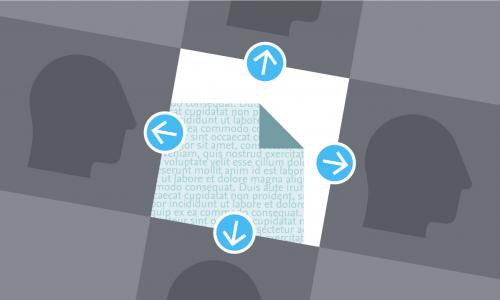
Engaging men in women’s advancement and empowerment in science endeavours
Duration
1 h
Theme 8: Advancing Science and Inclusive Career Pathways in Sustainability-related Emerging Research and Innovation Fields
View webinar about Engaging men in women’s advancement and empowerment in science endeavours

The Researcher Journey Through a Gender Lens: An examination of research participation, career progression, and perceptions across the globe
Duration
1 h
Theme 8: Advancing Science and Inclusive Career Pathways in Sustainability-related Emerging Research and Innovation Fields
View webinar about The Researcher Journey Through a Gender Lens: An examination of research participation, career progression, and perceptions across the globe

Theme 9 Introduction
Duration
10 m
Theme 9: Shaping the Next 10 Years of Research and Interventions for SDGs
View webinar about Theme 9 Introduction

Catalyzing the earning potential of disadvantaged women, men and youth by integrating them into viable economic systems
Duration
1 h
Theme 9: Shaping the Next 10 Years of Research and Interventions for SDGs
View webinar about Catalyzing the earning potential of disadvantaged women, men and youth by integrating them into viable economic systems

Building science in Africa with full participation of women as researchers, educators and leaders
Duration
1 h
Theme 9: Shaping the Next 10 Years of Research and Interventions for SDGs
View webinar about Building science in Africa with full participation of women as researchers, educators and leaders
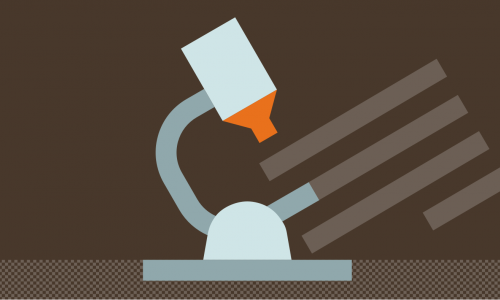
An integrated approach - gender and SDG interklinkages
Duration
1 h
Theme 9: Shaping the Next 10 Years of Research and Interventions for SDGs
View webinar about An integrated approach - gender and SDG interklinkages

Gendered Innovations in accountable data management research for sustainable development
Duration
1 h
Theme 9: Shaping the Next 10 Years of Research and Interventions for SDGs
View webinar about Gendered Innovations in accountable data management research for sustainable development

Initiatives and programmes for engaging women scientists in developing world in research for SDGs
Duration
1 h
Theme 9: Shaping the Next 10 Years of Research and Interventions for SDGs
View webinar about Initiatives and programmes for engaging women scientists in developing world in research for SDGs

Advancing BRIDGE (better research, innovation and development for gender equality) through cooperation between universities, industry and society
Duration
1 h
Theme 9: Shaping the Next 10 Years of Research and Interventions for SDGs
View webinar about Advancing BRIDGE (better research, innovation and development for gender equality) through cooperation between universities, industry and society

